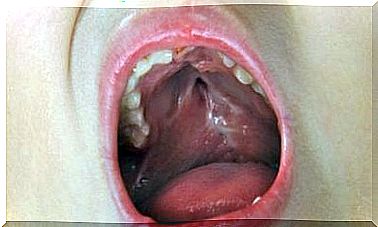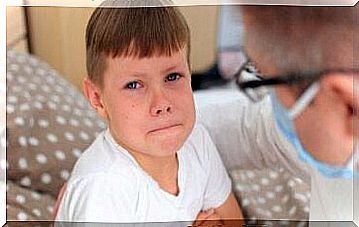Lack Of Vaccination Increases Measles Cases – You Are Mom

The lack of vaccination is one of the main causes of this increase in measles worldwide. In 2000, the United States was on the verge of declaring it eradicated on their territory. In fact, there was only an incidence of less than 12 cases per year and per region.
However, today, because of immigration and the vaccination gap, we are far from this objective. According to UNICEF, we could even speak of a new outbreak of the disease.
What is measles?
Measles is a very serious and contagious disease which, before the massive vaccination movement of the population, caused around 2 million deaths per year. Today, according to a report by the World Health Organization (WHO), it is estimated that of all deaths recorded in 2017, 110,000 were due to measles. And of those 110,000, the majority were children who were between 2 and 3 years old.
The disease is caused by a virus of the paramyxovirus family that exclusively affects humans. Contagion occurs by direct contact or through the air and first affects the respiratory tract and then spreads throughout the body.
The effects of the virus on the lack of vaccination
The virus first manifests as a high body temperature 10 or 12 days after infection. Then, an exanthema (red-colored spots) appears, usually on the face and in the neck, which spreads to the rest of the body, reaching the hands and feet. After 5 days, the symptoms begin to reverse and disappear.

However, in other cases, complications can arise during the infectious process and cause blindness, encephalitis, pneumonia and ultimately lead to death if symptoms are not treated in time. These very serious cases are more common in children under 5 years of age with a depressed immune system. And living in areas of undernutrition or where vaccination does not take place.
The causes of the lack of vaccination
Dr Seth Berkley, CEO of Gavi (the Vaccine Alliance), cites competition from various facts as a possible cause of this increase. For him, “ the self-complacency with the disease and the spread of falsehoods about the vaccine in Europe, a paralyzed health system in Venezuela and the fragility and low vaccination coverage in Africa led to the new global emergence of measles after years of progress ”.
Countries such as Guatemala, Nigeria and Pakistan are currently on alert for a possible resurgence of measles due to the lack of vaccination in these countries. This fact attracts attention. Indeed, the measles vaccine is very inexpensive, since its price is stuck between the pharmaceutical sector and UNICEF.
Wars or the lack of a proper health system in developing countries means that, in many cases, children receive only the first of the two doses necessary to create immunity to the disease, when immunizing a child costs less than one euro.
Vaccine rejection in developed countries
This information and the fact that in 2012 the National Health Assembly approved the Global Vaccine Action Plan to eradicate measles contrasts with the epidemiological information of measles in the first world.
The lack of vaccination in these countries is worrying news: the anti-vaccine movement’s campaigns that misinform the population have helped spread the belief that vaccination is not necessary if symptoms can be treated, same as the dangerous side effects.

However, the reality is quite different: health professionals are reconsidering a possible vaccination campaign among women born between 1971 and 1981, since contracting measles during pregnancy can mean spontaneous abortion or severe congenital defects. the fetus.
The measles vaccine is over 60 years old. It is safe and effective, so it is usually supplied in conjunction with rubella and mumps. Certainly a percentage of the population has adverse effects, but we are talking about millions of annual vaccinations here.
Measures to prevent contagion from measles
In 2001, associations such as the International Committee of the Red Cross, the United Nations, UNICEF and WHO signed an alliance, The Measles and Rubella Initiative, which pursues the following objectives:
- Fight disinformation
- Provide a sustained investment system
- Publicly support vaccinations
- Extend vaccination to depressed areas
- Eradicate the disease









